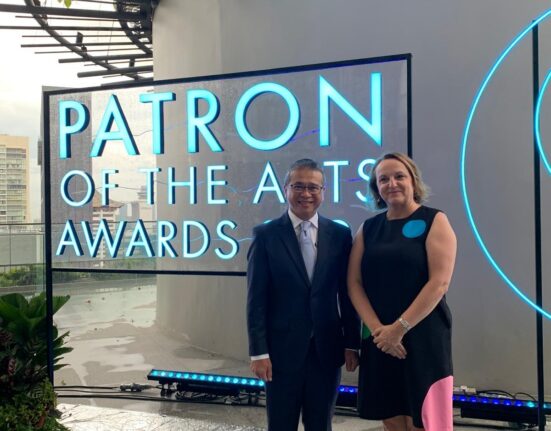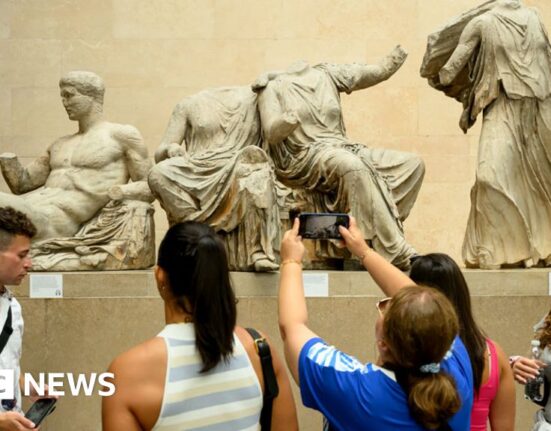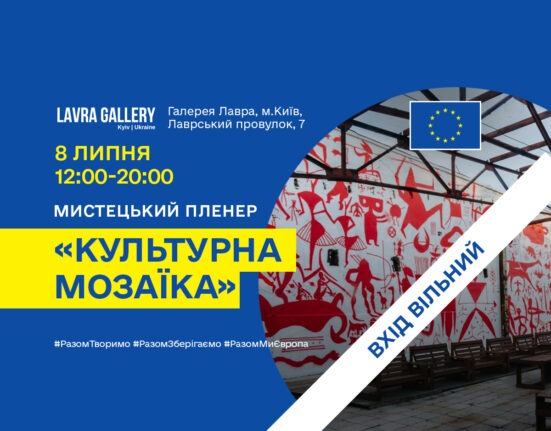The Worcester Art Museum announced Thursday that it has voluntarily agreed to return a pair of antiquities that were likely removed illegally from Italy. The returns are part of a long-term loan agreement that enables the museum to display the objects for up to eight years before exchanging them for comparable antiquities from Italian museums.
The arrangement, a first for the Worcester museum, comes roughly a year after the museum hired its first provenance researcher to work with its collections.
“We are deeply grateful to the Italian Ministry of Culture for their collaboration, which will enable the Worcester Art Museum to regularly showcase new antiquities,” Claire Whitner, WAM’s director of curatorial affairs and curator of European art, said in a statement. “Provenance research is vital to ethical collecting, and we look forward to continuing this work.”
The objects in question — a ceramic storage jar and drinking cup — both hail from Greece around 500 BCE. The Worcester museum purchased the black-figure storage jar, or amphora, from Elie Borowski in 1956. Borowski, a well-known antiquities collector who founded the Bible Lands Museum in Jerusalem, donated the drinking cup, or kylix, to the museum that same year.

Daniel Healey, WAM’s inaugural provenance research specialist, said he was alerted to potential problems in the objects’ provenances when he discovered Borowski had acquired both objects from the late Robert Hecht, an antiquities dealer who was often accused of trafficking in looted artifacts.
“That’s quite a big red flag,” said Healey, who along with Whitner decided to take a “proactive approach,” sending photographs and other information to the Italian authorities. “They got back to us and basically said, yes, these are matches to our database of looted and stolen items.”
He added that the museum did not ask to see Italy’s files on the objects.
“We’re trying to do the right thing by Italy and uphold our own standards of collecting,” he said. “We trusted them and took their word. Obviously, the outcome was very good, because we now have this agreement with them, which is quite exciting.”
Dr. Paolo D’Angeli, head of the department of general affairs of the Italian Ministry of Culture, praised the Worcester museum’s “ethical integrity” in researching objects in its collections while “understanding that the findings could potentially indicate illicit provenance.”
“The Ministry of Culture can only express its utmost appreciation for the Museum’s voluntary decision to return” the objects to Italy, he said in a statement. “This gesture marks the beginning of an agreement that will engage the Museum and the Italian Ministry of Culture in a fruitful policy of loans and cultural exchanges.”
Under the terms of the agreement, the Worcester museum has transferred ownership of the two objects to Italy, which has in turn agreed to loan them to WAM for a period between four and eight years. WAM will then return the antiquities to Italy in exchange for a loan of equivalent objects from Italian museums. The loans will recur on a rotating basis.
The Worcester Art Museum announced it would hire a provenance researcher after the Manhattan district attorney’s office seized an ancient bronze bust from the museum in 2023 as part of a broader smuggling investigation. The museum purchased that sculpture, which was valued at $5 million, from Hecht in 1966.
The storage jar and drinking cup, which were taken off view for planned gallery renovations, will go on view this Saturday in the museum’s new highlights gallery.
He added that although WAM “is not actively acquiring antiquities,” the new agreement will enable the museum to display new works of art from the ancient world.
“The opportunity to get really high-quality objects from Italian museums is very exciting,” he said. “We don’t lose an object and get nothing in return.”
Malcolm Gay can be reached at malcolm.gay@globe.com. Follow him @malcolmgay.






